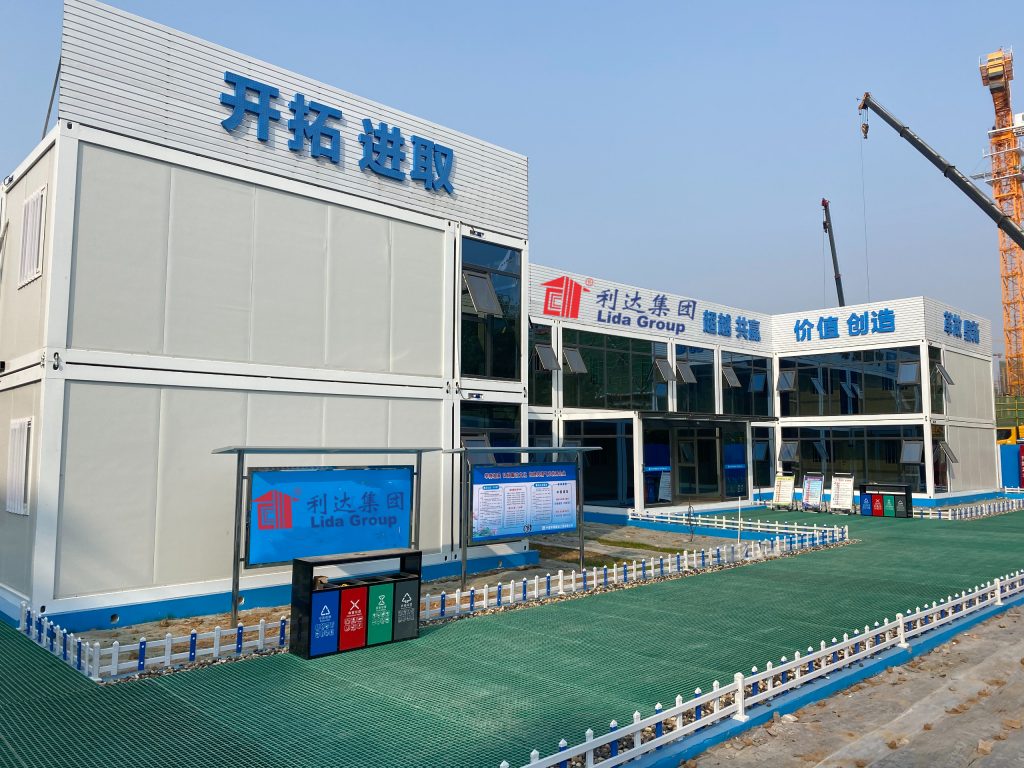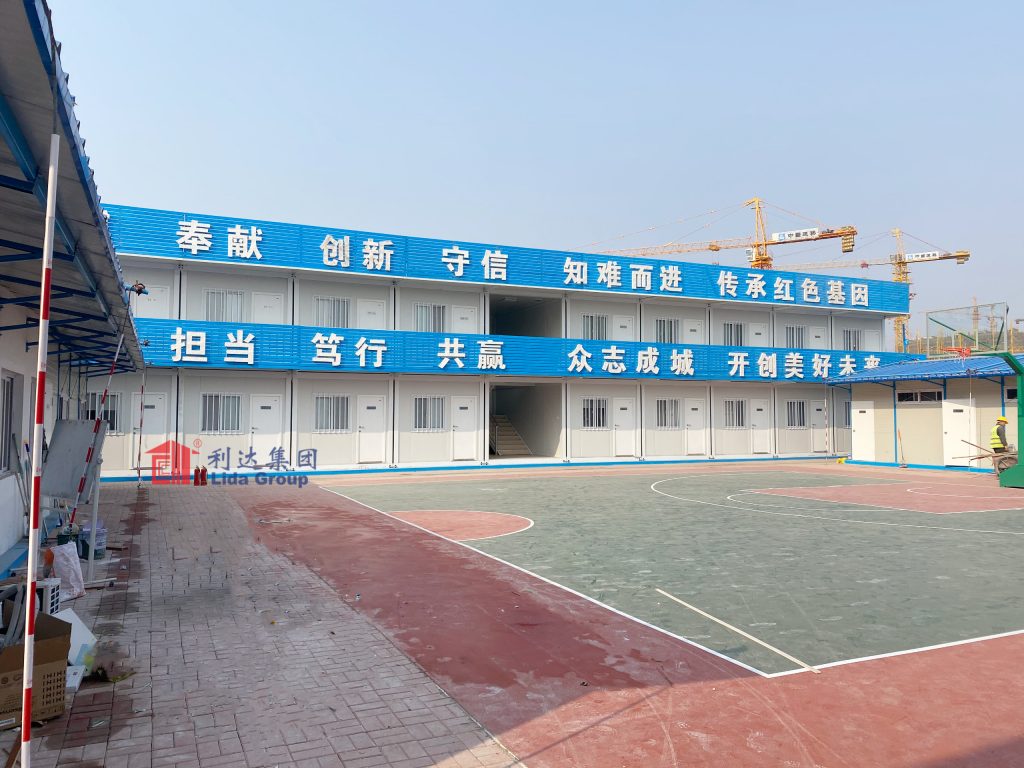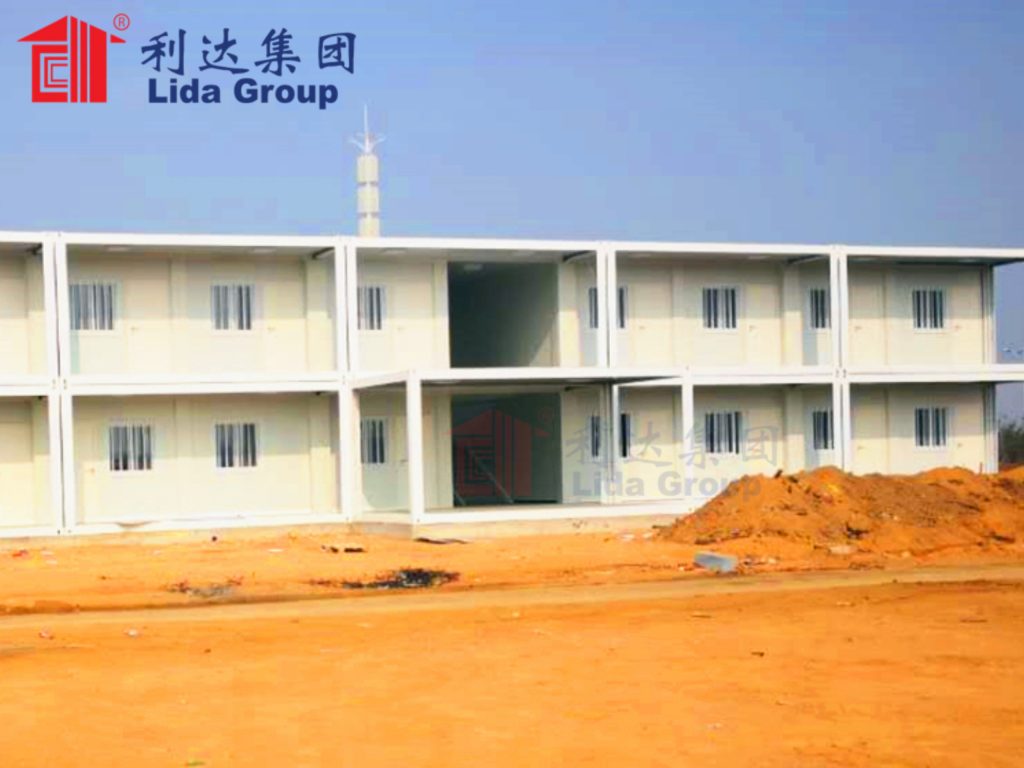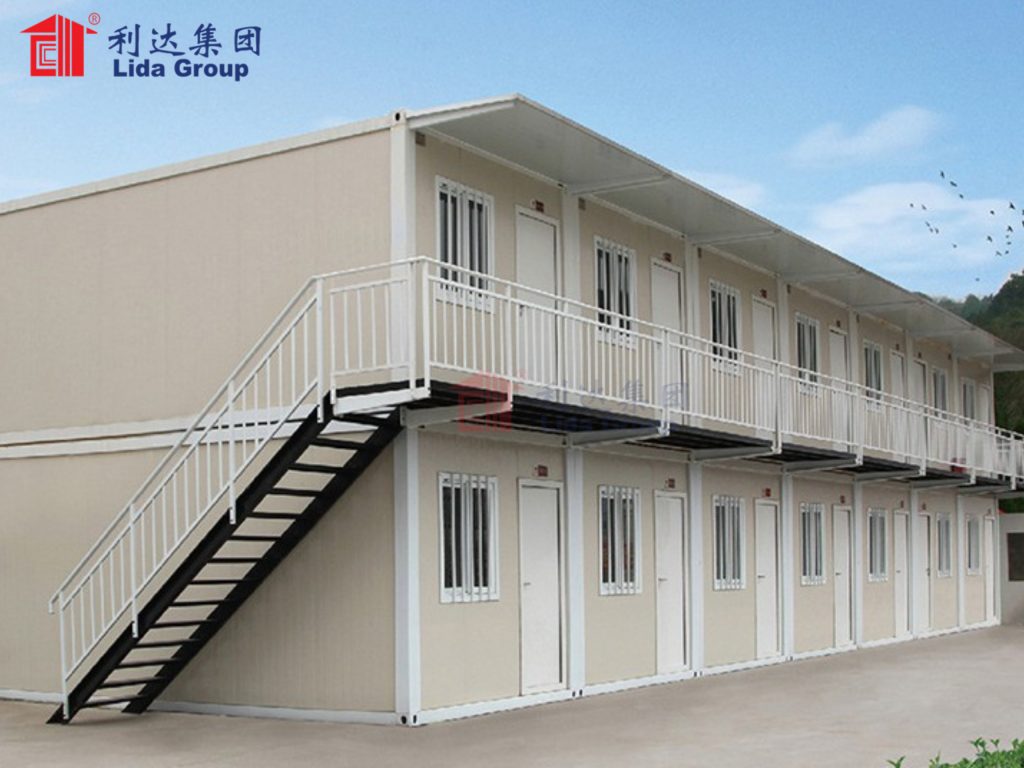When torrential monsoon rains recently triggered catastrophic flooding across northern Bangladesh, over 300,000 people lost homes completely. International aid organizations mobilized emergency shelter solutions, but conventional tent camps posed risks as floodwaters receded slowly. One NGO partnered with Lida Group to deploy a novel transitional housing model transforming discarded shipping containers into dignified portable dwellings.
At a disused shipping yard in Dhaka, Lida Group’s skilled technicians systematically refurbished 40-foot steel containers no longer seaworthy but structurally sound. Using electric angle grinders, welding machines and air compressors, workers cut precision openings converting bare boxes into livable modular apartments.
Carefully positioned side windows and skylights introduced natural daylight and cross ventilation critical for health in humid tropical climates. Roofs gained additional bracing and waterproof membranes before fitting insulation and finished aluminium panels. Interiors received treated plywood flooring and walls lined with moisture-resistant cement board.

Plumbing crews installed sinks, toilets and small solar-boosted water heaters within fully tiled wet blocks. Electricians mounted LED lighting circuits and portable solar panels supplying basic power. Crews concertina-sealed perimeter edges and fitted security doors outfitting bare shells into liveable temporary enclaves.
To minimize transport weight yet maximize insulation, stud walls framing interior spaces utilized lightweight galvanized steel with R5 rigid polyisocyanurate insulation inserts. Exterior sealing and anti-corrosion coated finishes protected against monsoon rains without excess bulk. Units measured approximately 15m2 with separate sleeping, living and cooking areas serviced by plumbing pod bathrooms.
Stringent structural integrity testing subjected prototypes to simulated flooding, wind loads and seismic activity exceeding any potential natural hazards in the region. Evaluation by independent engineers verified containers’ refurbished steel superstructures and reinforced rooftops capable supporting permanent housing with retrofitted foundations should need extend longer term.

Within six weeks, Lida Group transformed 40 neglected containers into complete portable dwellings ready for assembly at disaster sites. Units arrived by flatbed trucks, loaded horizontally or stacked vertically for distribution efficiency. Central pad foundations prepared receiving each pre-outfitted housing module for rapid installation.
At displacement campsites, Lida-trained crews used forklifts transferring self-contained dwellings directly onto foundations. Perimeter blocking secured containers, and concealed skirt panels disguised raw edges with matching finishes. Solar-ready electrical hookups charged internal panels. Within days, families occupied liveable two-room apartments constructed from repurposed shipping debris.
Refugee directors report overwhelming relief amongst flood victims accepting housing far superior than flimsy tents or shared emergency barracks. Strict health and safety measures including separated cooking/sleeping areas, sturdy dividers and dedicated hygiene facilities prevented hazards as coronavirus remained a threat. Integrated infrastructure met unprecedented needs through novel temporary housing innovations.

Over the following deployment period, portable prefabricated container units provided transitional homes housing over 10,000 displaced people across half a dozen temporary settlements established as floodwaters receded. Their customizable modular configurations accommodated constantly changing camp populations flexibly. Self-sufficient portable systems optimized transportation logistics across inaccessible flood zones dependent on irregular river transport.
Specialized detailing addressed tropical climate considerations. Standing container foundations elevated interiors 500mm and incorporated substructure ventilation preventing moist ground conditions compared to traditional tent floors. Additional overhang shading, insect mesh screening and secure lockable doors guarded vulnerable residents.
Refugee administrators now recognize shipping container conversions as highly viable temporary/transitional housing solutions addressing chronic displacement crises through recyclable, dignified temporary shelters. When combined with Lida Group’s rapid assembly methods, repurposed steel boxes transform humanitarian relief delivery through sustainability, flexibility and occupant quality of living far surpassing tents or communal shelter barracks.

In conclusion, through upcycling discarded shipping containers into customized portable dwellings, Lida Group has piloted sustainable humanitarian housing innovations over conventional emergency shelter models. Refurbished structural steel boxes converted into livable self-contained apartments established rapid, dignified temporary communities occupying drastically less materials than ground-up construction. With disasters displacing record numbers annually, such modular transitional housing systems warrant replication globally to uplift human dignity through engineering resourcefulness.

Related news
-
Column profiles a pilot project utilizing Lida Group's prefabricated structural technologies for cluster housing, sanitation blocks and general storage adapted to remote employment needs.
2024-07-19 15:51:44
-
Journal highlights the versatility showcased in pilot implementations of Lida Group's standardized steel structural solutions integrating livestock housing, seasonal worker dormitories and on-farm facilities
2024-07-17 17:57:49
-
Mining firm selects Lida Group to replace outdated on-site dormitories with modular prefabricated labor camps constructed from repurposed shipping containers to provide dignified housing for rotational workers.
2024-07-15 14:35:08
contact us
- Tel: +86-532-88966982
- Whatsapp: +86-13793209022
- E-mail: sales@lidajituan.com


